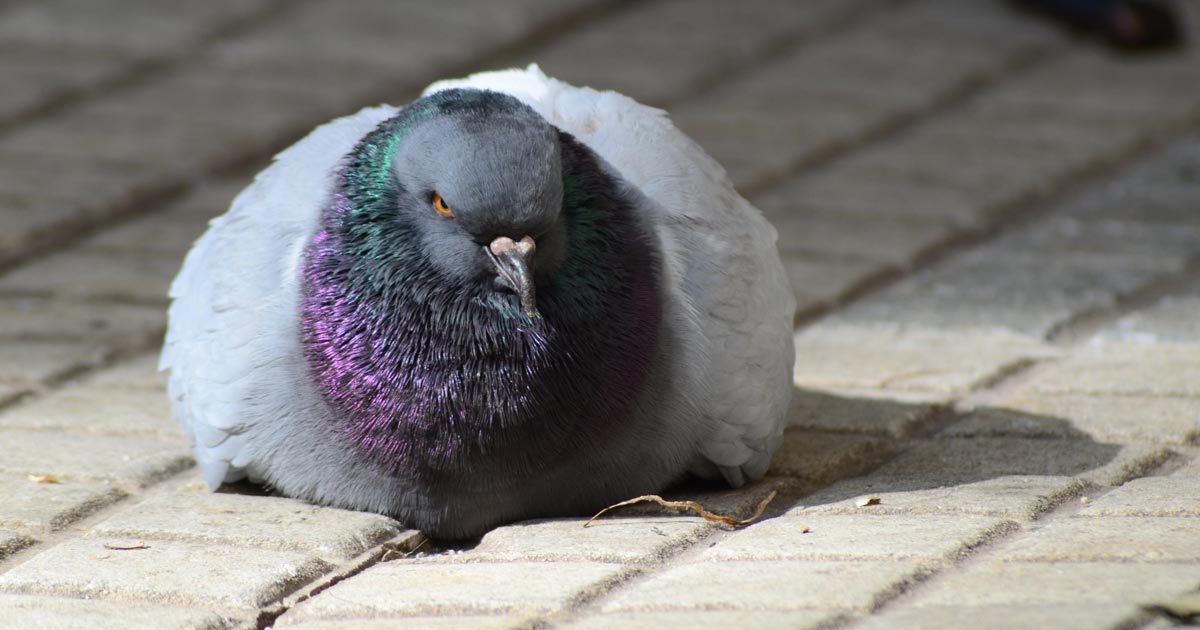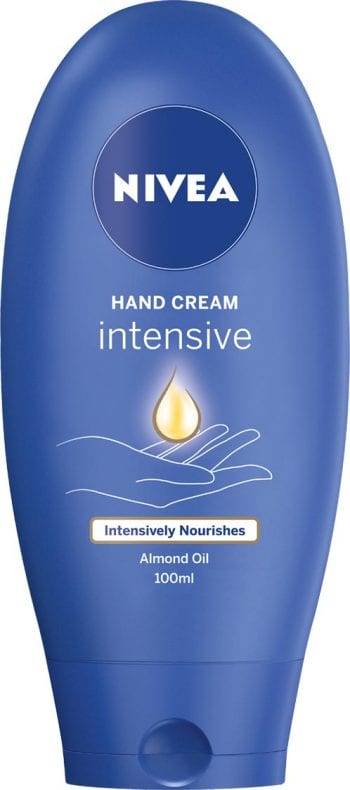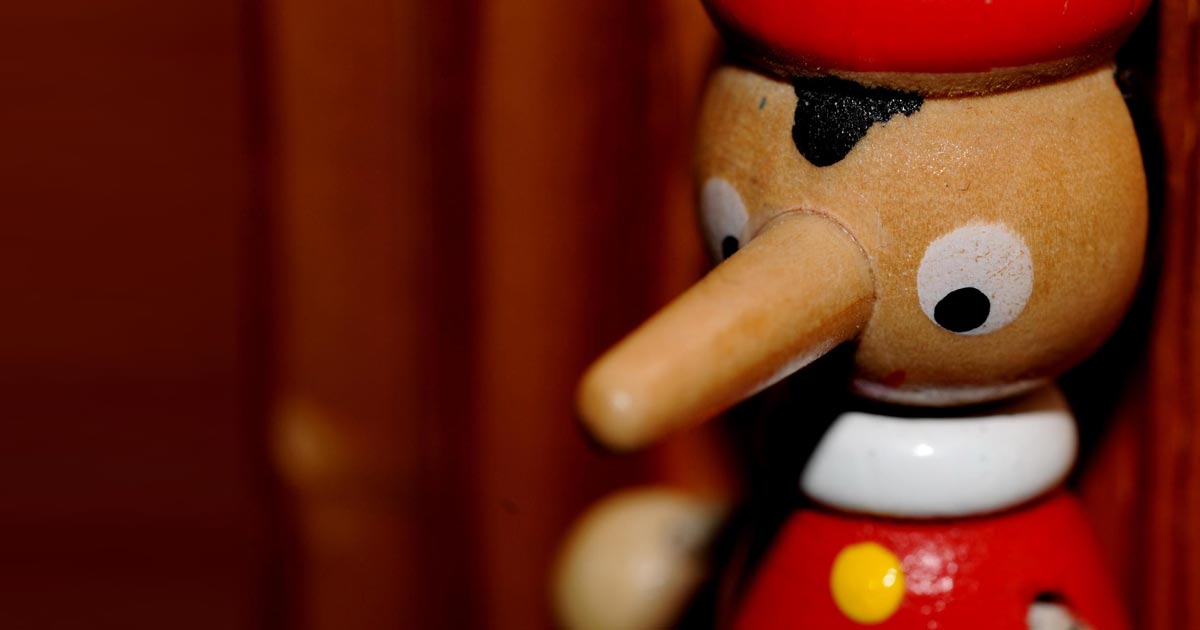In the role of a caregiver, is it ever okay to lie? Little white lies, great big fibs… am I even lying to myself about lying?
This topic came to mind this month while thinking about the responsibility we have to ensure we maintain relationships with the people who bring animals in for treatment. With pets it’s usually a long-term relationship and one that benefits from honesty, but I think some shorter-term relationships benefit from a little white lie.
No, I’m not on Tinder… I’m thinking about the people who bring in wildlife for treatment.
Pigeon people, seagull people, hedgehog people, squirrel people and – here in London – mice from the Tube people… it seems most people who bring in wildlife have a particular species they care for most and step in to help where they can.
Urban jungle

Having spent my career in London, most people assume I won’t have seen much wildlife – yet, as well as mice from the Tube (should there not be a children’s TV show about them? Trademarking that idea), I regularly saw ducklings, seagulls, curlews, hedgehogs, bats, squirrels and more.
The relationship with people who aren’t your clients, but come in with a foundling, is a complex one. I’ve written before about how quickly you can get attached to an animal you’ve found, so it’s probably not a surprise to find the people who bring in wildlife have established a relationship with them and are invested in their well-being. This raises some issues – some good, some not so good.
So, when is honesty the best policy? And when do we tell a little white lie?
The best policy?
I’ve helped people who have brought in injured wildlife and then driven that animal to the nearest wildlife centre to save staff doing it on their way home.
Honesty really worked in these situations – the people wanted to help and brought the animal to the best place they knew, which just happened to be the local vets. This clinic had a list of places that would help wildlife, so I called while the finder was there to work out the best course of action.
I explained to the finder we could take the animal in and would transfer it to the wildlife rescue that evening or the next day. They were so pleased we could help, they asked about the wildlife rescue and offered to go there for us – a wonderful surprise and a great relationship builder with this person who, you know, was going to share the positive experience they had.
So, if honesty is winning here, why do I think about lying?
Little white lies
I think about, and have lied on more than one occasion, as I know wildlife rehab is a hard road with many pitfalls.
To get a wild animal – that is so sick it can be caught by us lumbering humans – well enough again to survive in the wild is hard. Very hard. Therefore, the vast majority of injured wildlife brought in to us at the vets is unlikely to be rehabilitated and released. This is disappointing to me, and I understand the issues and have attended a number of wildlife CPD events.
It can seem very harsh to those not so knowledgeable about wildlife rehab to say the majority of wildlife we see needs to be euthanised, so this is where I think a little white lie comes in handy.
Economical with the truth
In my experience, some people refuse to bring in wildlife if they think we will euthanise it – yet they will struggle to access help for injured wildlife elsewhere, especially in a city. Because of this, I feel telling the truth can result in more animals suffering, as they will not be brought to the vets.
It’s a tough one, as honesty is also a way of educating people, but sometimes (just sometimes) holding in the need to educate everyone I meet can do wonders.

An unusually fragrant pigeon
I recall one particular pigeon lady arriving out-of-hours with a thin pigeon in a box. I took the details of when and where it was found, so it could be released back there once recuperated (always start with a positive attitude).
As I took the details and looked at the pigeon, I noticed a familiar smell. I had a minor panic and wondered if maybe I’d been a vet nurse for too long if I was recognising the smell of street pigeons, but there was also a nagging thought that this familiar scent was quite nice… what on earth was happening to me?
After I had taken the history (found in the gutter, not flying, had been kept in the person’s flat overnight and eaten some bird seed), I took the pigeon to the prep room to examine it more fully in a quiet space. However, as I walked along, my brain was desperately trying to place the scent of this pigeon – a not unpleasant smell that was so familiar.
Was this how I was going to end up, liking the smell of London pigeons?
A bird in the hand… cream
 Then it hit me: the pigeon smelled of Nivea hand cream.
Then it hit me: the pigeon smelled of Nivea hand cream.
On closer inspection, it became obvious this very thin pigeon had been covered in the stuff – every feather was covered, from beak to tail.
Although things weren’t looking great for this pigeon anyway, the hand cream was the final straw. It couldn’t fly, could obviously eat, but not gain weight, and had probably ingested hand cream from cleaning its feathers.
Despite this, I called a wildlife centre to ask how I should proceed. I was aware that, for a sickly bird covered in oil, the advice was to wait until it was healthy enough to bathe, as the shock of handling and bathing a poorly bird was often enough to kill it. I wanted to be sure we did no harm if we were to try to save it.
The advice was to observe for 24 hours and, if there was no sign of improvement, to euthanise. This is what we did – and yes, sadly, the pigeon was euthanised the next day.
The art of lying
If this blog is about lying, what did I tell the person who found it? I had spent some time with her getting the history and she had told me about other pigeons she had taken home, fed, then released – so she was regularly caring for wildlife.
She hadn’t brought anything to the clinic before as she was worried about the bill, so was really pleased to learn we would treat the pigeons and accept any donation she wished to make to help with costs.
This fledgling (pun intended) relationship was, in my view, too fragile to ruin by saying the pigeon would be euthanised. I discussed how putting hand cream on birds wasn’t good for their feathers – and she was so upset about this that I didn’t think she could take any more bad news.
Complex emotions
Then, not for the first time, I told a member of the public that a pigeon (or mouse or squirrel) would be sent to wildlife rehab, when the truth was it would be euthanised.
Why did I lie? Because to keep a person bringing in suffering animals to be helped – one way or another – is sometimes more important than honesty.
The role of caregiver is complex, and the focus must be on the welfare of the animals – but sometimes the welfare of those involved needs protecting, too.

Leave a Reply